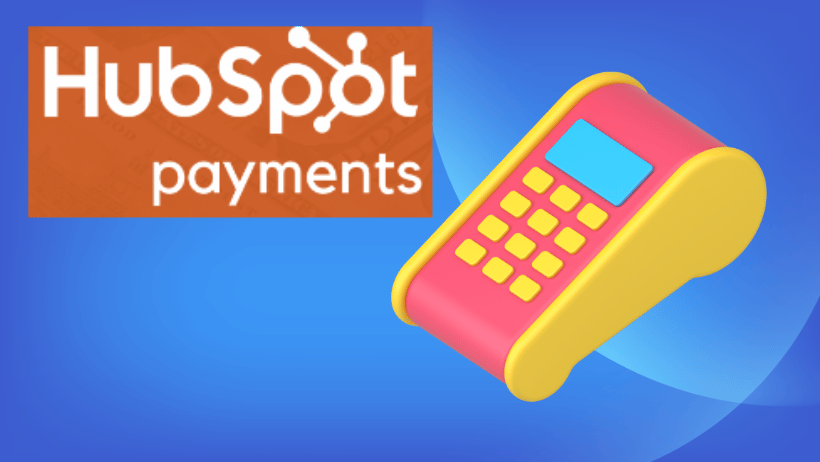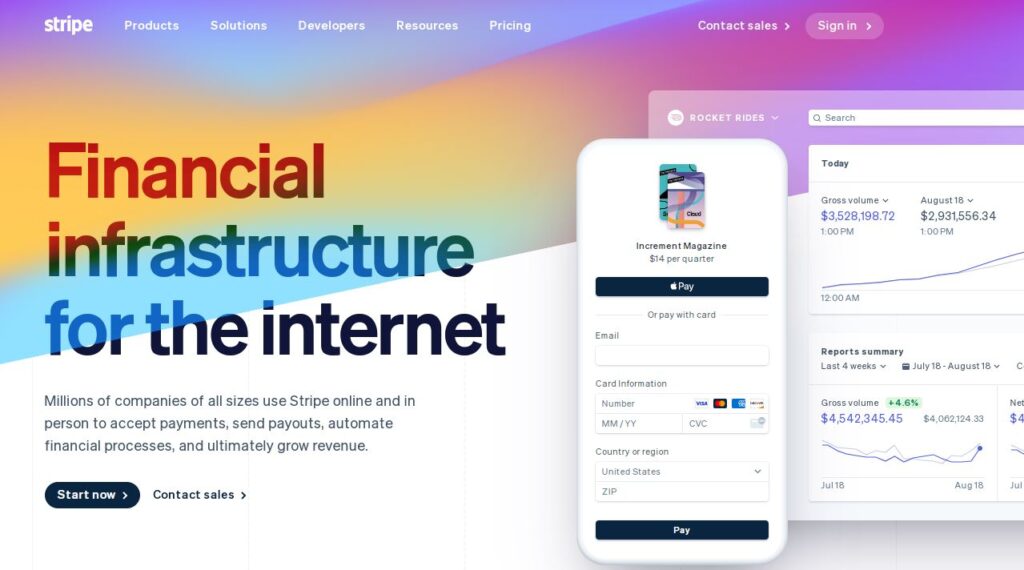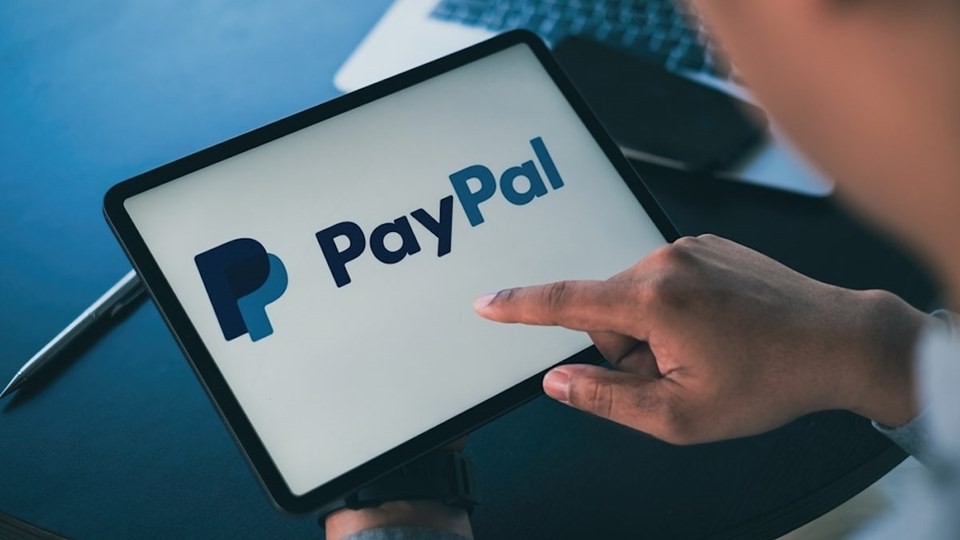In the hustle and bustle of running a small business, one thing that can’t be overlooked is choosing the right payment processing system.
Trust me, I’ve been there. There are so many options to choose from that it’s completely normal to feel unsure about which one is the absolute best for your particular needs.
To remain ahead of the competition in our ever-changing digital world, it is imperative to continually stay one step ahead. So, join me as we navigate through the ever-evolving world of payment processing.
I’ve compiled a list of the 7 best payment for small businesses in 2024, each with its own set of perks and quirks.
What Are the Best Payment Processing for Small Business in 2024?
Choosing a payment processing option for small businesses can be overwhelming, as each solution claims to be the best. Here are the top seven best payment processing options for small businesses in 2024.
1. HubSpot Payments

Managing payments for a small business can be confusing, but don’t worry – HubSpot Payments is here to make it easier. This payment processing option is excellent for entrepreneurs like us. It offers a simple and easy experience.
Integrating with HubSpot CRM is a game-changer, eliminating the hassle of switching between platforms. The user-friendly interface caught my attention – it’s not just easy; it’s practically a joy to use. HubSpot Payments seems to have cracked the code for small business owners, understanding our need for simplicity without sacrificing functionality.
Beyond the ease of use, the robust security measures provide a sense of confidence in every transaction. HubSpot Payments should be considered if you need a payment solution that caters specifically to the distinctive requirements of small businesses.
It’s the tool that has genuinely eased the payment process for my business, and could do the same for yours.
Key Benefits
- Seamless Integration: HubSpot Payments effortlessly integrates with HubSpot CRM, streamlining your workflow.
- User-Friendly Interface: The intuitive design ensures a hassle-free experience, even for tech novices.
- Small Business Focus: Tailored for entrepreneurs, it understands and addresses the unique needs of small businesses.
- Security Measures: Robust security protocols provide peace of mind for every transaction.
- Simplicity Without Sacrifice: Strikes the perfect balance between simplicity and functionality, making it a joy to use.
- No Platform Juggling: Bid farewell to the days of switching between platforms – HubSpot Payments keeps it all in one place.
- Game-Changing Convenience: From start to finish, it’s a game-changer, offering a smoother and more efficient payment process for your business.
Pros & Cons
Product Pros
Product Cons
Pros:
- Simplicity Wins: HubSpot Payments won me over with its user-friendly interface.
- Integration Delight: The seamless integration with HubSpot CRM is a game-changer. I love having everything in one place – it just makes life easier.
- User-Friendly Vibes: The user interface is a breath of fresh air. It’s easy to navigate, even for non-tech-savvy people like me. Transparent Pricing: No hidden fees or monthly commitments
Cons:
- International Snags: The limited support for international transactions could be a downer.
- HubSpot Dependency: While the integration with HubSpot CRM is fantastic for those already using it, it does create a bit of a barrier for businesses outside the HubSpot ecosystem. It’s a double-edged sword.
- Not for the Big Leagues: If you’re running a larger enterprise with complex needs, HubSpot Payments might feel too simple. It’s a perfect fit for small businesses, but the advanced features might be lacking for the big players.
For small businesses like mine, HubSpot Payments is a winner. It keeps things simple, integrates seamlessly, and, most importantly, understands our unique challenges. However, it might not be the one-size-fits-all solution for everyone.
2. Helcim

In the realm of payment processing solutions tailored for small businesses, Helcim stands out as a compelling choice. Discovering Helcim was like stumbling upon a well-kept secret in the entrepreneurial world.
What makes Helcim truly stand out is its extensive range of features designed specifically for small businesses. With its clear and fair pricing system and intuitive interface, Helcim effortlessly combines simplicity with powerful functionality.
The integration capabilities of this software are truly remarkable as they seamlessly integrate into my business operations, enhancing their efficiency and productivity. Security is a top priority, and Helcim ensures that every transaction is safeguarded.
Navigating payment processing can be intimidating for small business owners. Still, Helcim has proven to be a dependable partner, streamlining the process and enabling me to concentrate on expanding my business.
If you need a payment solution that understands how small businesses operate, Helcim could be the missing piece for your business.
Key Benefits
- User-Friendly Interface: Sleek design for easy navigation.
- Customizable Invoicing: Tailor invoices to suit your business needs.
- Detailed Analytics: Gain insights for informed decision-making.
- Comprehensive Platform: A one-stop solution for diverse payment processing needs.
- Personalized Customer Support: Receive dedicated assistance when you need it.
- Fairness First: Prioritizes fairness in dealings with users.
- Tech-Savvy and User-Friendly: Caters to both tech-savvy and less tech-inclined users.
- Strategic Ally for Small Businesses: Goes beyond processing payments, providing strategic support.
- Commitment to Transparency: Open and honest approach to pricing and services.
Pros & Cons
Pros:
- Transparency Champion: Helcim’s upfront and transparent pricing is fresh air.
- User-Friendly Bliss: The interface is sleek and user-friendly, making transactions easy.
- Tailored Invoicing: Customizable invoicing adds a personal touch to my business.
- Insightful Analytics: Detailed analytics empower informed decision-making.
- Supportive Partner: Helcim feels like a strategic ally, not just a payment processor.
Cons:
- Limited International Features: Could benefit from broader support for international transactions.
- Not for Tech Giants: They may need more advanced features for larger tech-savvy enterprises.
- Dependency Dilemma: The dependency on Helcim’s ecosystem might be a constraint for some businesses.
Helcim makes payment processing more straightforward to understand and use, but it may only work for some types of business.
3. Square

Square is a unique payment processing solution for small businesses, offering many tools.
This platform easily accommodates the various needs of businesses, offering a wide range of services that include point-of-sale solutions and online transactions.
The intuitive Square Dashboard offers real-time analytics, empowering users with actionable insights. What distinguishes Square is its transparent pricing model, eliminating the ambiguity of hidden costs often associated with payment processing.
Beyond facilitating transactions, Square extends its utility as a business companion, offering payroll management and inventory tracking features.
Square offers a seamless and hassle-free solution for businesses aiming to enhance their financial operations and expand their operations.
Key Benefits
- Versatile Merchant Account Provider
- Comprehensive Suite of Tools
- Adaptable for Various Business Needs
- Intuitive Square Dashboard for Real-time Analytics
- Transparent Pricing Model with No Hidden Costs
- Convenient Payment Links Feature
- Accepts Major Credit Cards
- Competitive Card Processing Rate
- Business Companion Beyond Transactions
- Streamlined Payroll Management
- Efficient Inventory Tracking
Pros & Cons
Pros:
- Efficient Credit Card Processing Services: Square’s credit card processing services are Swift and hassle-free, ensuring seamless transactions for my business.
- Portable Card Reader: The mobile credit card reader adds convenience. I can accept payments on the go, making my operations more flexible.
- Transparent Pricing, No Hidden Costs: The transparent pricing model is a standout feature, eradicating any concerns about hidden costs and ensuring clarity in financial dealings.
Cons:
- May Have Slightly Higher Card Processing Rates: While efficient, Square’s card processing rates might be marginally higher than those of some competitors, impacting overall transaction costs.
- Dependency on Internet Connection for Mobile Reader: The reliance on a stable internet connection for the mobile card reader can be a drawback, especially in areas with inconsistent connectivity.
In conclusion, Square offers efficient credit card processing and a versatile mobile reader, but considerations around processing rates and internet dependency should be weighed against its benefits.
4. Stripe

Stripe is an exceptional option for small businesses regarding payment processing. Its tailored features and flexibility make it a top choice in the market.
The platform provides many payment options for businesses and customers, making the experience smooth for everyone.
Stripe is an excellent option for businesses because it offers many payment options and transparent credit card processing rates, which make it easier to understand and manage finances.
Stripe is a dependable partner for small businesses, offering a user-friendly interface and robust security for online transactions. It helps businesses grow by providing a powerful tool.
Key Benefits
- User-Friendly: Simple setup & navigation
- Global Reach: International payments
- Secure Transactions: Robust security features
- Fast Payouts: Quick access to funds
- Transparent Fees: Clearly defined pricing
- Integration Ease: Seamless with various platforms
- Mobile Optimization: Convenient for on-the-go
- Best Credit Card Processors: Recognized industry leader
- Subscription Management: Easy recurring payments
- Customer Support: Responsive assistance
Pros & Cons
Pros:
- Intuitive Interface
- Global Payment Reach
- Developer-Friendly API
- Robust Security Measures
- Transparent Pricing Structure
Cons:
- Higher Transaction Fees
- Occasional Account Holds
- Customer Support Challenges
- Complex Chargeback Process
- Initial Learning Curve
5. Shopify Payments
Shopify Payments is a robust payment processing solution designed to streamline online transactions for small businesses.
Merchants can use this system to accept different payment methods easily, such as credit cards, digital wallets, and other popular options.
Shopify Payments integrates seamlessly with the Shopify platform, making it easy for merchants to use. The platform offers competitive transaction fees, eliminating the need for third-party payment gateways and simplifying the overall payment process.
Shopify Payments offers businesses convenient features like automated deposits, real-time sales and revenue tracking, and improved security to safeguard customer information.
This solution improves online transactions and makes customers feel secure and satisfied with a convenient payment experience.
Shopify Payments is a valuable tool for small businesses who want to improve their online stores and make purchasing easy for customers.
Key Benefits
- Integrated Platform: Seamlessly built into Shopify
- Diverse Payment Methods: Accepts credit cards, digital wallets, and more
- Competitive Transaction Fees: Cost-effective processing
- Automated Deposits: Streamlined revenue management
- Real-time Sales Tracking: Instant insights into transactions
- Enhanced Security: Protects customer information
- User-Friendly Experience: Simplifies the payment process
- Trust-building: Instills confidence in customers
- No Third-Party Gateways: Eliminates external dependencies
- Optimized for Small Businesses: Tailored for online storefronts
Pros & Cons
Pros:
Shopify Payments includes seamless integration with the Shopify platform, diverse payment options, competitive fees, and a user-friendly experience. Many appreciate the automated deposit system and real-time tracking features, enhancing efficiency.
Cons:
On the flip side, some users have reported limitations in customization, a learning curve for newcomers, and occasional transaction delays. Additionally, businesses in high-risk industries may find restrictions and international transactions could incur extra fees. While Shopify Payments offers enhanced security, some users express concerns about chargeback handling and a dependency on the Shopify platform. As with any service, individual experiences may vary.
6. PayPal

PayPal has become the ultimate choice for small businesses in payment processing, offering a smooth and secure platform for financial transactions.
Founded in 1998, this company has greatly changed how businesses handle online payments. One of the main advantages of this platform is its user-friendly interface, which allows businesses to effortlessly create an account and begin processing payments in a matter of minutes.
PayPal offers tools and services like invoicing, subscription management, and integration options for websites and apps.
The platform’s robust security measures, such as encryption and fraud detection, protect sensitive financial information.
PayPal is a reliable and user-friendly payment solution for small businesses that want to expand their online presence and simplify financial operations.
Key Benefits
- Easy Setup: Quick account creation and integration.
- Global Acceptance: Widely used with 392M+ users worldwide.
- Swift Transactions: Fast processing for efficient payments.
- Security Measures: Robust encryption and fraud detection.
- User-Friendly: Simple interface for seamless navigation.
- Invoicing Tools: Convenient features for billing and invoicing.
- Subscription Management: Capability to handle recurring payments.
- Versatile Integration: Options for easy website and app integration.
- Buyer and Seller Protection: Safeguards for both parties in transactions.
- Mobile Accessibility: Access and manage transactions on the go.
Pros & Cons
Pros:
- Efficiency: PayPal ensures swift and hassle-free transactions.
- Security: Robust measures keep financial data safe and secure.
- Versatility: Easy integration, suitable for various online platforms.
- Global Acceptance: Widely recognized, facilitating transactions worldwide.
- User-Friendly: Intuitive interface for a seamless experience.
Cons:
- Fees: Some find transaction fees relatively high.
- Customer Service: Occasional delays and challenges in customer support.
- Hold Periods: Accounts may face temporary holds, causing inconvenience.
- Limited Dispute Resolution: Some users report difficulties in dispute resolution.
- Interface Changes: Periodic updates can be disruptive for chronic users.
7. Gravity Payments

Gravity Payments revolutionizes the payment processing industry by providing a customized solution exclusively for small businesses.
Established in 2004 by Dan Price, the company has carved a niche by prioritizing transparency and simplicity.
Gravity Payments charges a fixed fee, which is predictable and eliminates hidden costs that burden small businesses.
This commitment to transparency has resonated with entrepreneurs seeking financial clarity in their operations.
Gravity Payments is well-known for its affordable pricing, easy-to-use interface, and many features designed for small businesses.
From seamless online transactions to in-person payments, the platform ensures a smooth and secure experience for merchants and customers. Gravity Payments is a trusted ally for small businesses, helping them with payment processing.
Key Benefits
- Transparent Pricing: Clear, fixed fees without hidden costs
- Simplicity: Easy-to-understand payment processing
- User-Friendly Interface: Intuitive platform for seamless transactions
- Tailored for Small Businesses: Specifically designed to meet the needs of smaller enterprises
- Security: Ensures a safe and secure payment environment
- Financial Clarity: Helps businesses manage costs with predictability
- Trustworthy: Built on a foundation of transparency and reliability
- Empowering: Supports small businesses in navigating payment complexities
- Comprehensive Features: Offers a range of tools for various payment scenarios
- Customer-Centric: Focuses on providing a positive experience for merchants and customers alike
Pros & Cons
Pros:
- Transparency: Clear and fixed fees for straightforward billing.
- User-Friendly: The intuitive interface makes transactions easy.
- Small Business Focus: Tailored solutions for unique needs.
- Security: Reliable measures for a secure payment environment.
- Financial Clarity: Predictable costs aid budget management.
Cons:
- Limited Features: Some users find advanced tools lacking.
- Technical Glitches: Occasional hiccups reported by a few users.
- Upfront Costs: Higher initial expenses may be challenging.
- Integration Challenges: Issues syncing with certain software.
- Currency Support: Limited options for international transactions.
What is payment processing for small businesses?
Payment processing is the intricate process that encompasses various steps and actions aimed at facilitating seamless electronic transactions between purchasers and vendors. It encompasses the authorization, authentication, and settlement of financial transactions, ensuring a secure and seamless transfer of funds.
How can payment processing for small businesses benefit you
Payment processing for small businesses offers a range of significant benefits that can positively impact both operational efficiency and customer satisfaction. Here are some key advantages:
- Increased Sales Opportunities:
- Small businesses should offer different payment options, like credit and debit cards, to attract more customers. Offering multiple payment options gives customers the freedom to choose, resulting in more sales opportunities.
- Enhanced Customer Convenience:
- Offering diverse payment options makes transactions more convenient for customers. Whether in-store or online, providing flexibility in payment methods contributes to a smoother and more satisfying shopping experience, potentially fostering customer loyalty.
- Faster and Secure Transactions:
- Modern payment processing systems facilitate quick and secure transactions. The use of secure and efficient payment gateways ensures that transactions are processed swiftly, reducing wait times for both customers and businesses.
- Improved Cash Flow Management:
- Efficient payment processing contributes to better cash flow management. With timely and automated transactions, small businesses can more effectively plan and manage their finances, reducing the risks associated with delayed payments.
- Streamlined Operations:
- Automation in payment processing reduces the need for manual intervention, streamlining business operations. As a result, small businesses are able to use their resources more efficiently, putting their focus on core activities rather than wasting time on manual payment processing.
- Data Insights and Analytics:
- Many payment processing systems provide valuable data and analytics tools. Small businesses gain insights about customers, preferences, and habits to make informed decisions and implement effective marketing strategies.
- Enhanced Security Measures:
- Modern payment processors incorporate robust security features, protecting both the business and its customers from potential fraud or data breaches. Compliance with industry standards and encryption technologies ensures the secure handling of sensitive financial information.
- Facilitation of Online Business:
- For small businesses with an online presence, seamless payment processing is crucial. It enables easy integration of e-commerce platforms, expanding the reach beyond local markets and opening doors to a global customer base.
- Competitive Edge:
- They are providing efficient and diverse payment options that position small businesses competitively. Customers often choose businesses that offer hassle-free and secure payment methods, contributing to the overall perception of professionalism and reliability.
- Builds Trust and Credibility:
- A reliable payment processing system builds trust with customers. When transactions are smooth, secure, and transparent, it enhances the credibility of the business, fostering long-term relationships with customers.
Embracing effective payment processing solutions tailored for small businesses can significantly contribute to operational efficiency, customer satisfaction, and overall business success. The benefits extend beyond mere transaction facilitation, positively impacting various facets of a small business’s operations and growth.
What Fees Come With Payment Processing?
Credit card processing fees can include:
- Interchange Fees: Fees paid to the card-issuing bank.
- Assessment Fees: Fees set by card networks (Visa, Mastercard, etc.).
- Processor Markup: Fees charged by the payment processor for their services.
- Flat Fees: Fixed charges per transaction.
- Incidental Fees: Charges for specific events, like chargebacks or retrievals.
To make good decisions and manage costs effectively, businesses need to have a clear understanding of all their fees.
How does payment processing work?
The payment processing procedure comprises a series of crucial steps. As soon as the customer starts a payment, the payment information is immediately and safely transmitted to the payment processor. The processor then verifies the transaction details, checks for available funds or credit, and communicates with the issuing bank for approval. Once authorized, the funds are transferred to the merchant’s account, and the transaction is settled.
How long does it take for a payment to process?
The time it takes for a payment to process varies depending on several factors, including the payment method, banks involved, and the overall payment processing system. Generally, online transactions can be processed within seconds for card payments, while bank transfers may take a few days. Real-time processing and settlement have become more prevalent, reducing the traditional delays associated with payment processing.
Buyers Guide: How We Conducted Our Research
During our research to identify the optimal product, we assessed the following criteria:
- Pricing: Evaluating the cost of each product.
- Features: Identifying the standout features of each product.
- Negatives: Analyzing the shortcomings or missing elements in each product.
- Support or Refund: Investigating the presence of community support, customer assistance, or refund policies for each product.
Conclusion
In summary, our investigation into the seven best payment processing for small businesses has unveiled a curated list of solutions designed to meet the unique needs of small enterprises.
Through an in-depth analysis of pricing, features, drawbacks, and support mechanisms, we aimed to offer valuable insights to business owners seeking optimal payment processing solutions.
Choosing a reliable and personalized payment processor is increasingly important as businesses adjust to a continually changing environment. This guide will assist small business owners in making informed decisions for seamless financial transactions.
Frequently Asked Questions
What is the best way to avoid credit card fees?
To minimize credit card fees, consider negotiating rates with your payment processor, explore interchange-plus pricing models, and encourage customers to use lower-cost payment methods like debit cards or ACH transfers. Additionally, staying vigilant about understanding and managing your fee structure is crucial.
What is the least costly payment method?
Generally, electronic bank transfers, ACH payments, and debit card transactions tend to have lower processing fees compared to credit cards. Assessing your business needs and customer preferences can help determine the least costly method for your specific circumstances.
Do you use QR codes, payment links, and online invoicing?
Yes, leveraging QR codes, payment links, and online invoicing can streamline payment processes. These technologies enhance convenience for both businesses and customers, allowing for efficient and contactless transactions. Many modern payment processors offer these features to facilitate seamless transactions.
Is credit card processing secure?
Yes, credit card processing is generally secure when using reputable and compliant payment processors. The Payment Card Industry Data Security Standard (PCI DSS) comprises a set of industry regulations aimed at ensuring the secure management of critical data. Businesses should choose processors that prioritize security and employ encryption and other measures to protect data integrity during transactions.
How do small businesses process payments?
Small businesses employ various methods to handle payment processing, including credit and debit cards, digital bank transfers, mobile payment solutions, and online payment gateways. Many people and businesses use point-of-sale systems, payment processors, or payment service providers for secure and efficient transactions.
Should I avoid tiered credit card processor pricing?
Avoiding tiered credit card processor pricing can be beneficial. Tiered pricing models may need more transparency, making it easier to understand the actual cost of transactions. Consider opting for interchange-plus pricing, which provides a more transparent fee structure and can potentially result in lower overall processing costs.
What are Credit Card Processors?
Credit card processors are entities or companies that facilitate electronic transactions between businesses and customers. They enable the authorization, authentication, and settlement of credit and debit card payments. For businesses of all sizes, these processors are essential in guaranteeing secure and flawless financial transactions.







